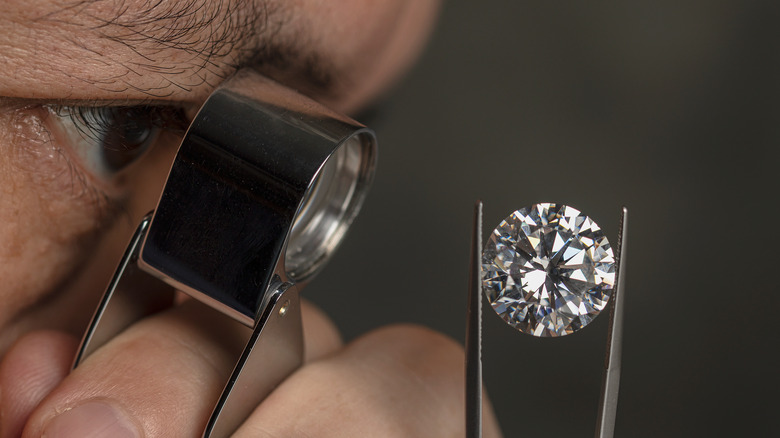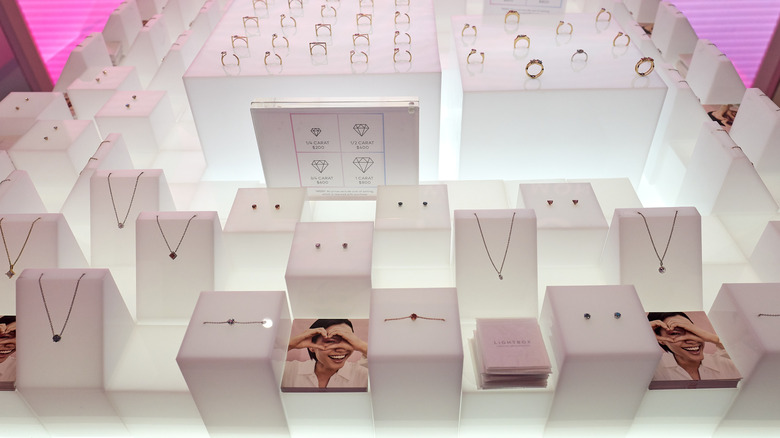Lab Grown Vs. Natural Diamonds: Which Is The More Ethical Choice?
As companies respond to a growing eco-minded consumer base, different products have originated as a result. Exhibit A: lab-grown diamonds. If you're wondering how that's possible, you can thank modern technology for the somewhat controversial innovation. While the diamond-mining industry has countless moral flaws of its own, there are some discrepancies over which diamond choice is best for the planet and on account of human rights.
According to The Guardian, fair trade certifications have helped to curb the incidence of blood diamond mining in which the profits went towards military strikes. As the industry shifted, yet another consumer demand started to change the market once again. The outlet notes that some sellers harp on the environmental benefits of lab-grown diamonds, while others question the validity of their eco-friendly claims.
Essentially, the idea is that lab-grown diamonds don't have the high human cost of mined diamonds and emit a lower amount of carbon. However, this new type of diamond poses the question of ethics when it comes to job security. "If you start to grow diamonds in a lab, you're not only taking away a job, but you're also closing down communities and closing down countries," Urica Primus, a native of a mining town, tells The Guardian. "How will [miners] survive, how will they sustain themselves, their livelihoods, their families?"
Lab Grown diamonds are cheaper than natural diamonds
In addition to lowering carbon emissions, lab-grown — or synthetic — diamonds are also cheaper. According to Brides, these stones come at a price that's between 25 and 40% lower than what your natural diamond will set you back. Because the natural diamond growing process that takes a million years only requires a month or so in a lab, the cost is much lower. Furthermore, these diamonds are said to reduce the devastating impact that the diamond industry has had on the Earth.
"On average, for every one carat that is mined from the ground, up to 250 tons of earth are removed, 127 gallons of freshwater are used, billions of gallons of water are contaminated with acid mine runoff, 143 pounds of air pollution are emitted, and countless gallons of fossil fuels are consumed," Ryan Shearman, founder and CEO of Aether Diamonds, tells the outlet.
Just like most environmental issues, this one has many layers and complexities. If you want a diamond that doesn't damage the planet, stick with a lab-grown option. On the other hand, if you want to support the local communities that mine the stones ethically, talk to your jeweler about ethical diamonds that meet certain labor and environmental standards that protect workers as the planet. Luckily, as the demand has changed, more of these are available than ever.

